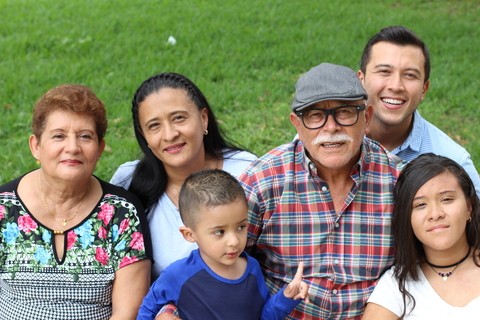Yesterday, the U.S. Department of Homeland Security (DHS)’s U.S. Citizenship and Immigration Services (USCIS) announced a final rule that will transform how USCIS interprets and implements the “public charge” ground of inadmissibility under Section 212(a)(4) Immigration and Nationality Act (INA).
This new rule is a major change from prior policy and affects all people applying to receive lawful permanent residency through the adjustment of status process in the United States, including both family-based and employment-based applications. The rule also impacts certain non-immigrants in the United States seeking to extend their period of stay or change non-immigrant status in the United States.
Under the INA, an applicant deemed inadmissible as a public charge is ineligible to adjust her status to that of a Lawful Permanent Resident (LPR) (also commonly known as a “green card”) in the United States.
The final rule is scheduled to be published in the Federal Register on August 14, 2019 and will go into effect at midnight on October 15, 2019. The final rule will only apply to applications and petitions postmarked on or after the effective date. Therefore, applications and petitions filed prior to October 15, 2019 will not be subject to the final rule.
The final rule formally defines “public charge” as a person who is likely to receive one or more designated public benefits for more than 12 months (in the aggregate) within any 36-month period. The final rule defines “public benefit” to include cash benefits for income maintenance, Supplemental Nutrition Assistance Program (SNAP), Supplemental Security Income (SSI), Temporary Assistance to Needy Families (TANF), most forms of Medicaid, and certain housing programs.
Starting October 15, 2019, USCIS will evaluate the totality of an adjustment of status applicant’s circumstances to determine whether the applicant is more likely than not to become a public charge at any time in the future. USCIS will consider a number of factors in its analysis, including the applicant’s age, health, work history, current employment status and income, future employment prospects, education, skills, and assets. The final rule lists specific positive and negative factors that USCIS must weigh more heavily, including possession of private health insurance (positive) and current or past receipt of public benefits (negative), among others.
Once the final rule goes into effect, applicants for lawful permanent residency in the United States will need to prepare and file Form I-944 along with Form I-485, Application to Adjust Status. Form I-944 requires detailed information about the applicant’s household members, household income, assets, debts, credit score, bankruptcy history, health insurance, past and current receipt of public benefits, past applications for fee waivers, education, skills, ability to speak English, and employment history.
Going forward, in family-based applications for residency, USCIS will use Form I-864 signed by the Petitioner/Sponsor, Form I-944 signed by the applicant, and the applicant’s supporting documents to evaluate the totality of the applicant’s circumstances to determine whether she is more likely than not to become a public charge sometime in the future.
This rule also applies to employment-based applications for lawful permanent residency, and individuals applying for lawful permanent residency through employment will be required to complete the Form I-944 and establish that they are not likely to become a public charge in the future.
If USCIS deems an applicant inadmissible as a public charge, the final rule formalizes a framework in which an applicant might be able to post a bond – in USCIS’s discretion – to overcome this ground of inadmissibility.
Importantly, the final rule will not apply to people who were previously exempted from the public charge ground of inadmissibility. The rule does not apply to people whom are already LPRs residing in the United States.
The final rule is long, complicated, and rife with uncertainty in its future application. An applicant’s eligibility for adjustment of status may shift drastically starting on October 15, 2019.
It is imperative that all future adjustment of status applicants consult with immigration counsel to carefully and thoroughly evaluate their options and the associated risks before deciding whether to apply for lawful permanent residency.
If you have questions about the public charge final rule and its impact on your case, please contact Kolko & Casey, P.C. at (303) 371-1822 to schedule a consultation with an experienced immigration attorney.
